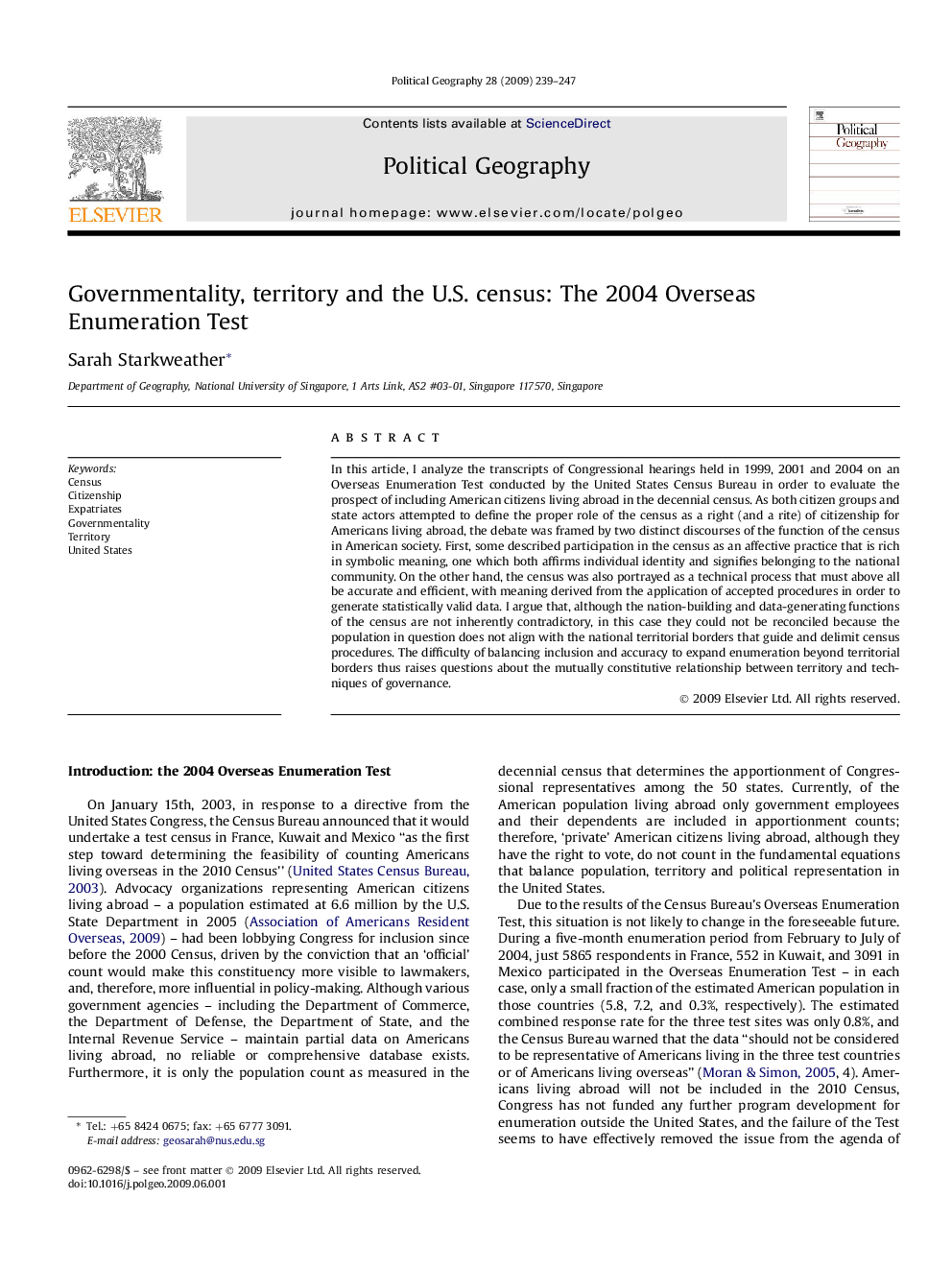| Article ID | Journal | Published Year | Pages | File Type |
|---|---|---|---|---|
| 1062332 | Political Geography | 2009 | 9 Pages |
In this article, I analyze the transcripts of Congressional hearings held in 1999, 2001 and 2004 on an Overseas Enumeration Test conducted by the United States Census Bureau in order to evaluate the prospect of including American citizens living abroad in the decennial census. As both citizen groups and state actors attempted to define the proper role of the census as a right (and a rite) of citizenship for Americans living abroad, the debate was framed by two distinct discourses of the function of the census in American society. First, some described participation in the census as an affective practice that is rich in symbolic meaning, one which both affirms individual identity and signifies belonging to the national community. On the other hand, the census was also portrayed as a technical process that must above all be accurate and efficient, with meaning derived from the application of accepted procedures in order to generate statistically valid data. I argue that, although the nation-building and data-generating functions of the census are not inherently contradictory, in this case they could not be reconciled because the population in question does not align with the national territorial borders that guide and delimit census procedures. The difficulty of balancing inclusion and accuracy to expand enumeration beyond territorial borders thus raises questions about the mutually constitutive relationship between territory and techniques of governance.
